Raspberry Pi Pico-Powered Pico 87 Keyboard Begins Crowdfunding
A bolt from the Blue (switches)!
Building your own Raspberry Pi-powered keyboard is a project many aspiring makers take on, but a recently launched Kickstarter campaign from maker Ian Dunn takes the hard work out of it by supplying everything you need as a kit.
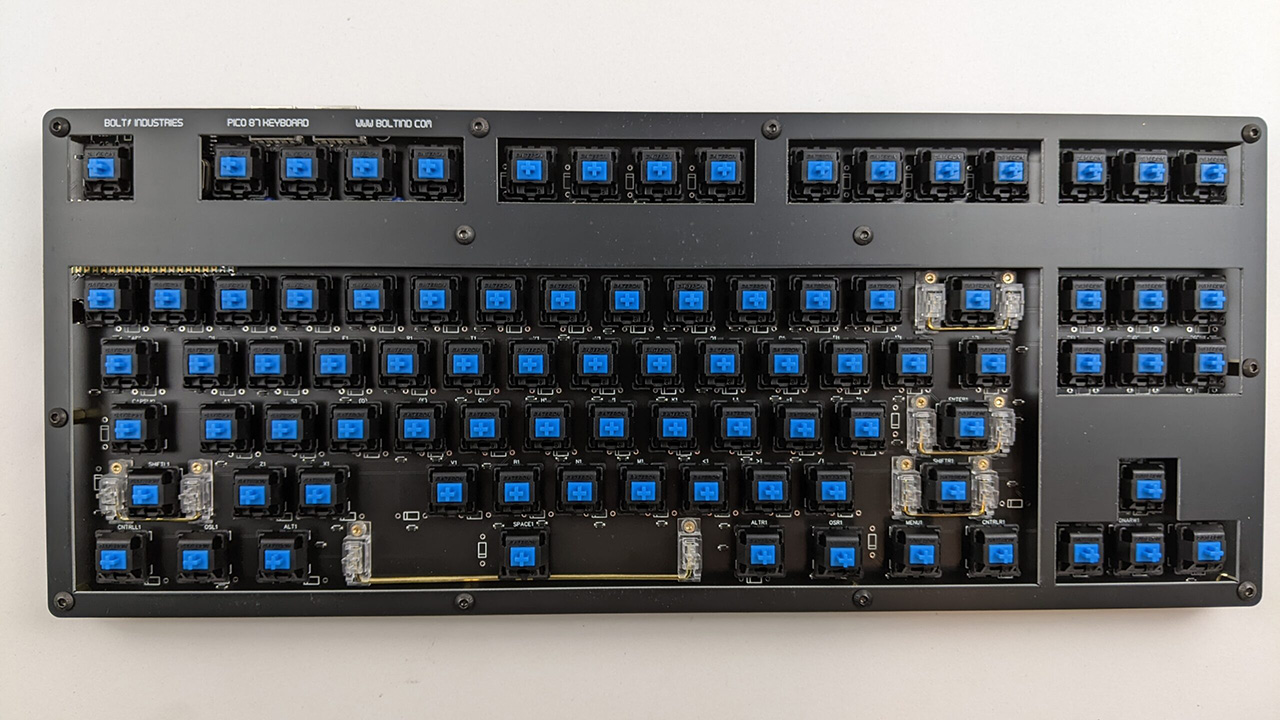
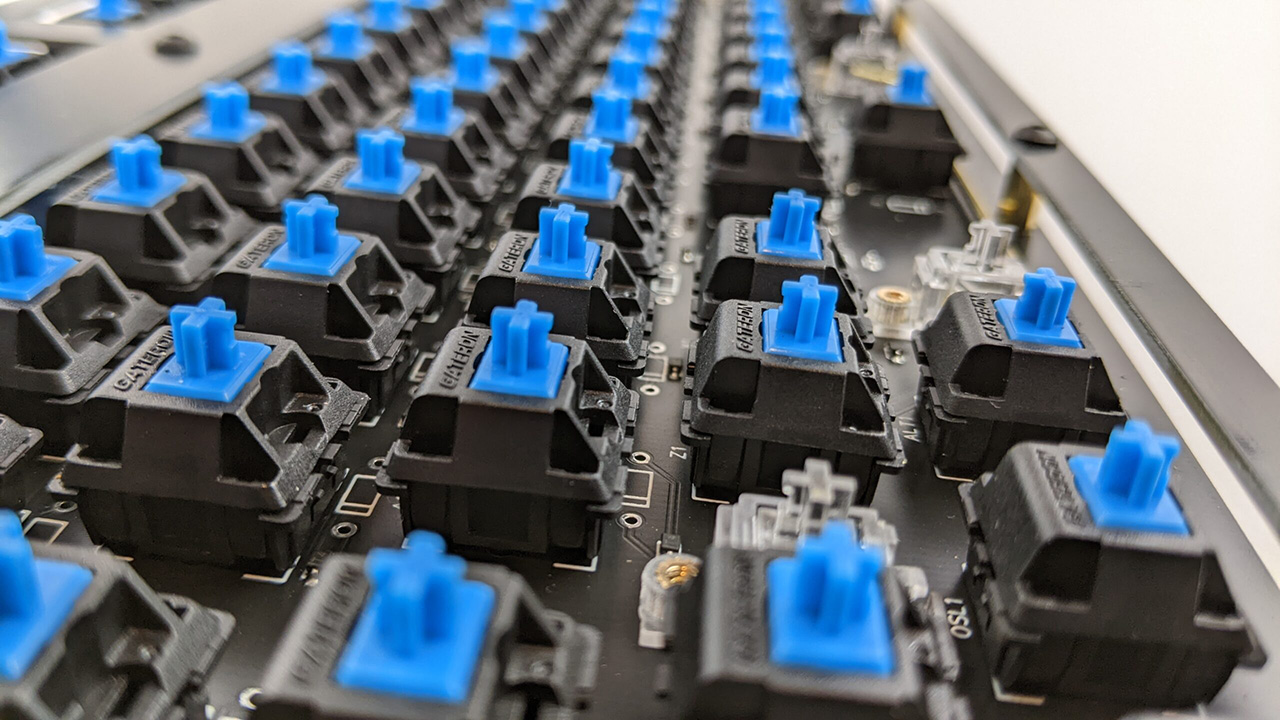
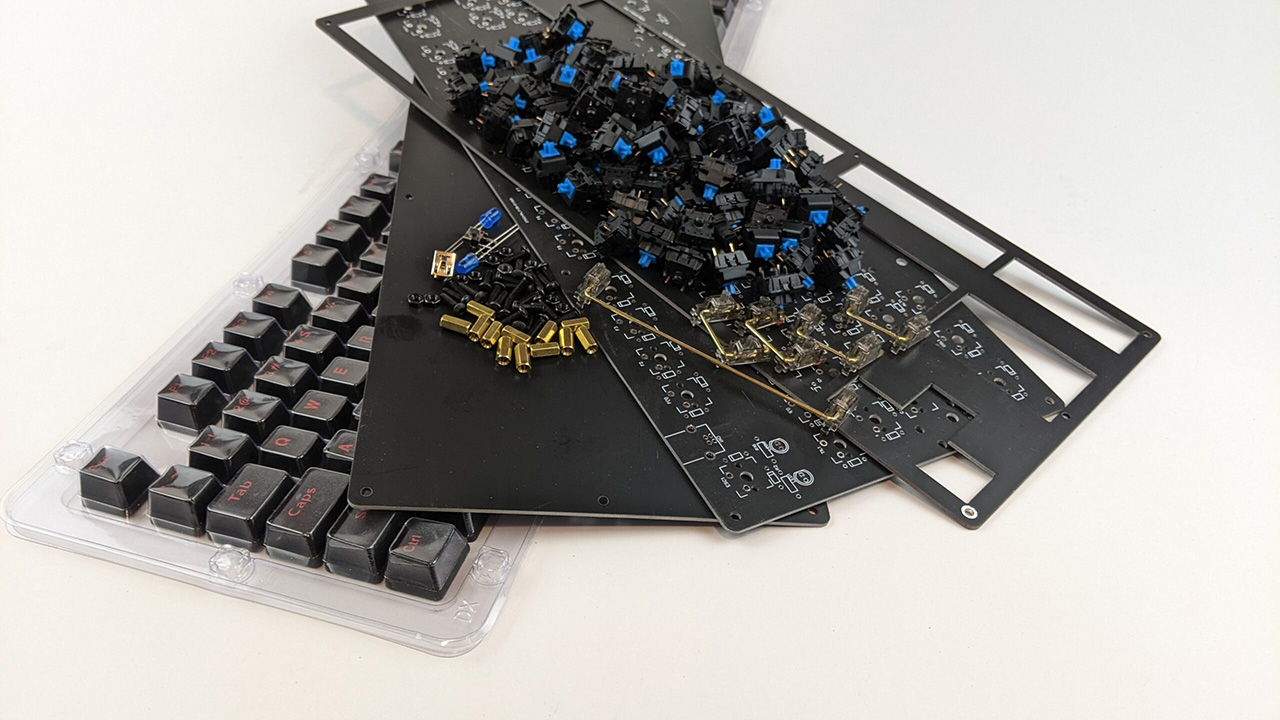
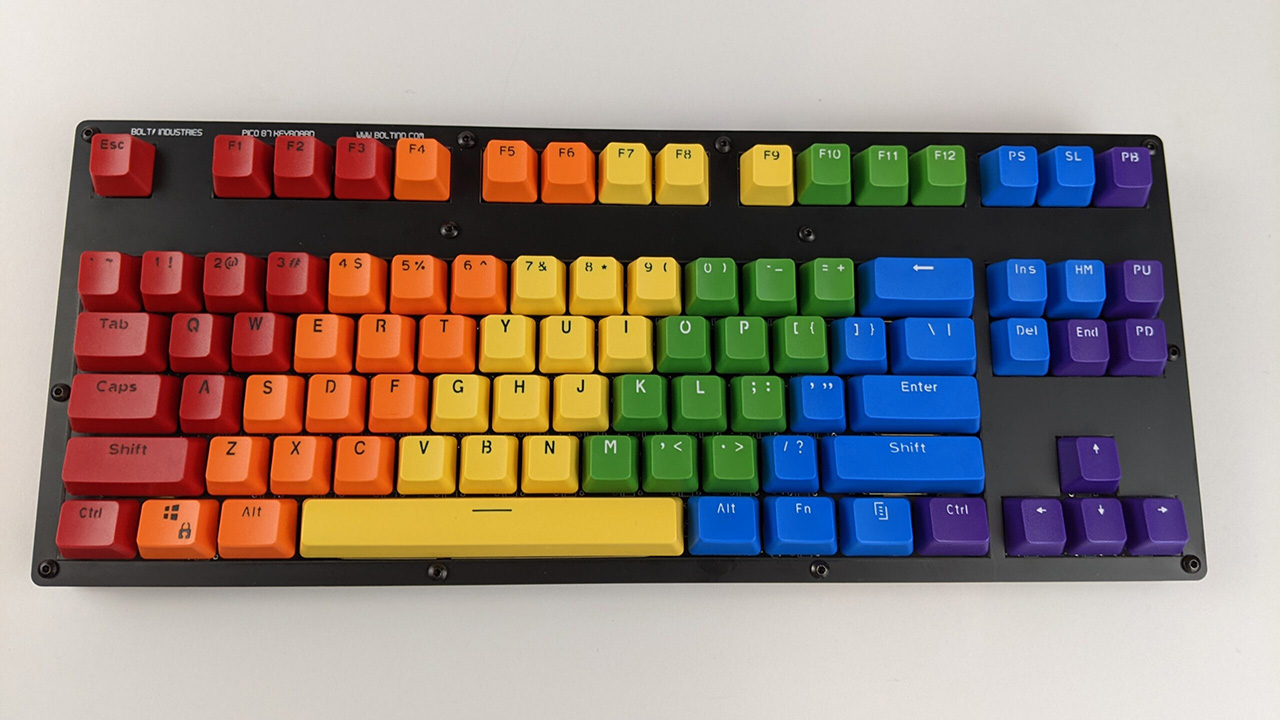
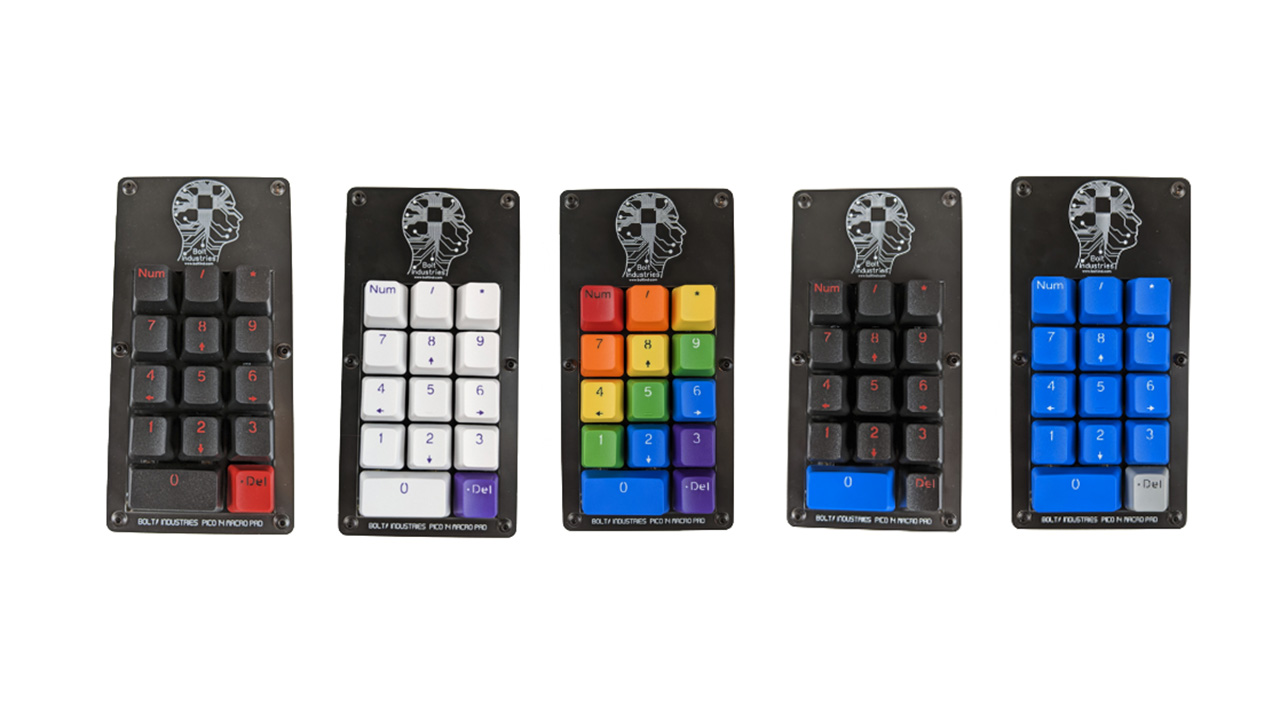
The Raspberry Pi in question is the $4 Raspberry Pi Pico, and the keyboard is a mechanical one. The Bolt Industries Pico 87 is a fully customizable - and programmable via the Arduino IDE - tenkeyless keyboard with 87 keys and should you wish to increase your pledge it can be configured to use an integrated two-port USB 2.0 hub. Sure this hub (a SL2.1A chip) may not offer blistering speeds but an extra two USB 2.0 ports is always welcome.
Another pledge tier in the Kickstarter is the Pico 14 numeric keypad, which fits nicely next to the main keyboard and is powered by its own Pico microcontroller, making it a completely independent device. Connecting this to one of the Pico 87's USB 2.0 ports provides a neat solution which can be easily removed to gain precious desk space.
The board is made of three layers of fiberglass-reinforced epoxy laminate (FR-4) that screw together. Its ABS doubleshot keycaps are available in any color, and you have your choice of Galtron switches (tactile or linear in seven varieties), diodes and stabilizers.
The keyboard is compatible with Windows, Linux and Mac computers, and just about any mobile device with a USB-C port or via a USB OTG adapter. It uses an open-source custom firmware called BMK, written for the Arduino IDE in C++, that allows any key to be programmed, and the firmware is available now on the Bolt industries GitHub repo. The Pico 87 is also compatible with KMK, a mechanical keyboard firmware that runs on CircuitPython - like another keyboard controller we reviewed recently and a subject we dug into in a special edition of the Tom’s Hardware Pi Cast. Alternatively, you can leave it alone and have it function like a regular keyboard.
At the time of writing, the campaign was more than 50% funded with 29 days to go. Remember that crowdfunding a project is not a guarantee of receiving a finished product. Backing a crowdfunded project is akin to an investment, you believe in the project and want it to succeed. You are not purchasing a retail product.
Get Tom's Hardware's best news and in-depth reviews, straight to your inbox.

Ian Evenden is a UK-based news writer for Tom’s Hardware US. He’ll write about anything, but stories about Raspberry Pi and DIY robots seem to find their way to him.
-
Sci666 Useless! What is the purpose for this? A freely configurable keyboard to switch position of Letters? There are Tons of gaming Keyboards with programmable additional Keys. Product is already dead.Reply